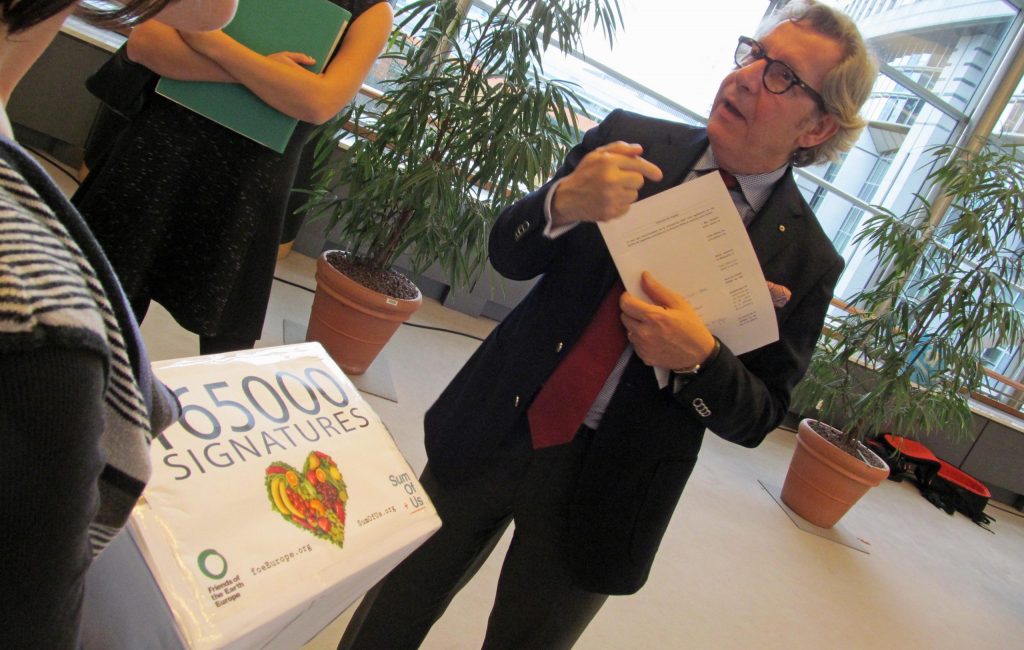Today signatures from more than 165,000 European citizens were presented to Gilles Pargneaux MEP, the vice-chair of the European Parliament’s Environment Committee, calling on him to close the loophole in the EU proposal to ban GMOs. The petition asked that the European Parliament guarantees member states have a real legal basis to ban GMOs from their fields.
After more than four years of negotiations, the European Parliaments is close to the final decision on which new rights governments in Europe will get to ban the cultivation of genetically modified (GM) crops. MEPs in the Environment Committee will be voting on what changes to make to a proposal by Europe’s environment ministers.
European governments are facing legal challenges to their national bans on GMOs by biotech companies, as well as pressure from the European Commission which is branding some such bans as scientifically unjustified. In response, European environment ministers voted to give biotech companies the right to be consulted in any decision to impose a national ban on a GM crop – a decision which Friends of the Earth Europe sees as a dangerous precedent for allowing corporations privileged access to the democratic decision-making process.
Speaking at the presentation of the petition, Mute Schimpf, GMO campaigner with Friends of the Earth Europe, said: “No country that chooses to ban or limit GMOs should be required to consult with corporations and seek their cooperation. Governments need legally solid rights to ban the cultivation of GM crops in their countries, without the undemocratic interference of corporate powers with vested interests. We are calling on the European Parliament to make big improvements to this weak proposal and to protect the democratic process.”
Friends of the Earth Europe is demanding that the European Parliament:
- Improves the legal solidity of the new law by giving it a new legal base as the Parliament already suggested in its first reading in July 2011
- Gives comprehensive grounds for bans on GMO cultivation based on wider impacts on agriculture and conventional farming. This means that governments could ban GM crops on the grounds of protecting diversity of farming production or the impossibility of co-existence measures. EU countries should be allowed to adopt measures also on the basis of grounds related to concrete environmental impacts, supplementary to the EU-wide risk assessment.
- Provides fair deadlines to introduce or lift bans for the farming sector. The Parliament should remove the proposed requirement for governments to wait two years before being able to initiate a ban on an authorised GM crop. Governments must be allowed to decide whether or not to restrict the cultivation of a GM crop in their territory during the whole period of validity of an EU authorisation for cultivation.
- Gives minimum protection to conventional and organic fields by making anti-contamination measures obligatory in all EU countries.







